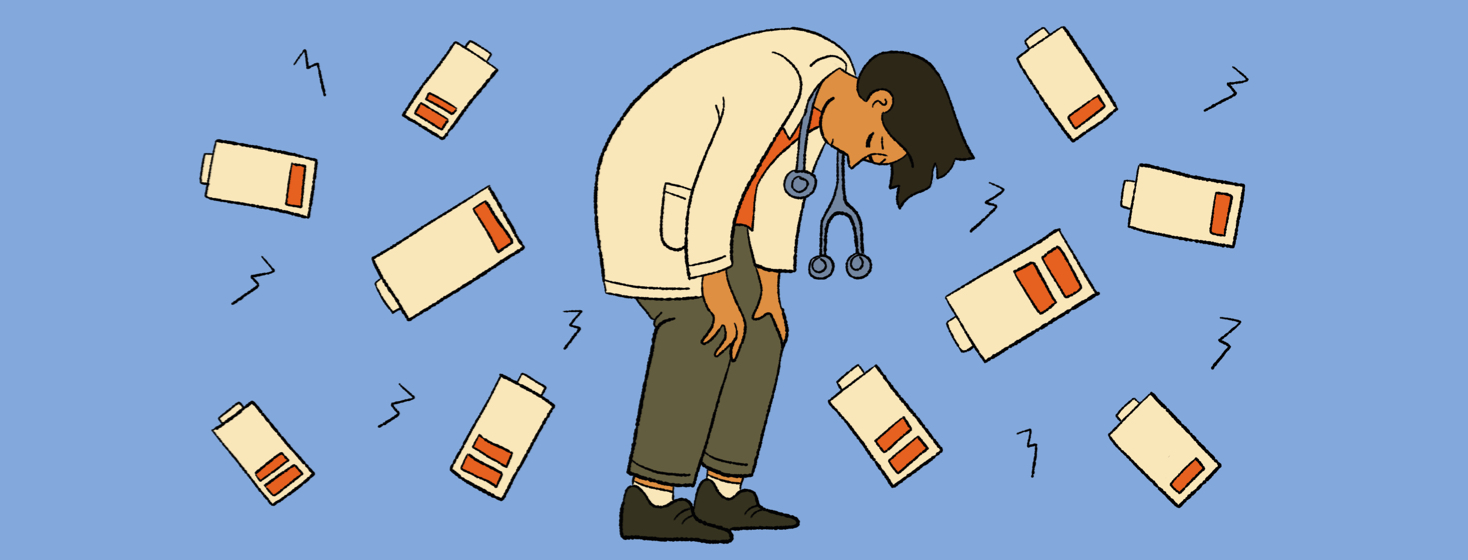Fatigue Overload and Others
Most people know or learn to realize that fatigue is very much in the equation when diagnosed with blood cancer. It’s a sore topic that many endure, and some are surprised how much it can change your lifestyle, especially if you were formerly active. You can still take part in activities, but again everyone is so different in how their bodies initially process this “new.” However, after visiting my hospital for my yearly tests, it dawned on me that not only do the patients have to re-adjust to what is happening to them, no fault of their own, but our care team may be affected as well, and here’s why that’s a big deal.
Oops! It was missed
I think we can all agree anytime a conversation begins with an oops or a sorry, it sets up the stressors that may already be present when visiting an oncologist. For those who are familiar with the protocols and process we usually know what happens for most of those visits, and for those new you’ll learn along the way.
After getting blood drawn, part of one of other tests that were being done for the day, I noticed...maybe... they forgot to take my blood pressure, and maybe they forgot to take my weight. Hum.
This or That
How does cancer-related fatigue impact your daily life?
Missing some tests
I had other things on my mind such as the next test that was on the day's agenda to sweat it too much, but I did notice some red flags of things missing. I also noticed that the person taking my blood was moving a bit slow, but not thinking much, but reminding her “to use a small needle, please”.
I noted though everyone were dutifully there, I could see some signs of possibly fatigue. Look, it’s been a rough couple of years for everyone with the pandemic ad everything else going on, but I don’t know if we fully understand the depths, it played and still plays on the hospital staff that work with us.
Next up
Now though this is not a problem that a patient should have to worry about, we sort of have to pay attention. If the team is feeling crazed, then what is happening with the clinical and nonclinical tasks? What and how much is placed on an already small plate?
Looking at the quality of care
Again, not an “us” issue but it may end up hurting us in some form or another, when we look at the quality of care, we’re used to and what we’re now getting. Some may even say “Well anyone is the medical environment should be used to work overload.” This is not really the case because we all need rest. I can’t say putting these men and women on a pedestal of being superhuman is fair. Sometimes, we forget but somewhere in the back of our mind we have to remember what we’re all dealing with, and how to make our time with them easier, if we can.
How we can help the health care team
Well, the responsibility of giving these people the leverage and tools to get their fatigue in order may be more an administration issue; however, there may be some ideas we can consider, if we run into an issue-
- Tip 1 -- Light conversation- “So, how’s it going today?” If signs show this needle prick may not go well, politely ask if someone else who usually gets those small veins with no issue step in- Be Proactive if you feel trouble.
- Tip 2 - Discuss how you may be feeling today and allow for some openness on how they are dealing and coping today, that blast of honesty may put them at ease to share their sentiment and give them that needed spark in recognizing they may be on fatigue overload and to rectify it.
This whole experience is really being vocal and present to what is surrounding your care- all parties may not have blood cancer, but they definitely feel the effects of what we go through. It can be a lot!
What other tips can you think of?
The time to fight is now, with integrity, grace, hope, and a smile…when you feel like it

Join the conversation